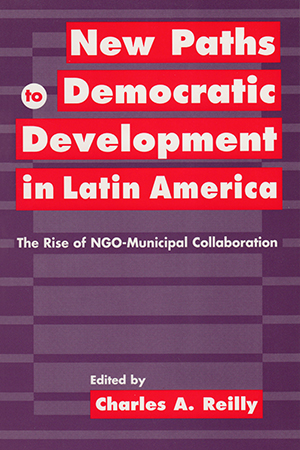
- 1995/320 pages
New Paths to Democratic Development in Latin America:
The Rise of NGO-Municipal Collaboration
Joining the growing body of literature examining NGOs and social movements in Latin America, this collection reaches beyond the study of the organizations themselves to explore their complex collaborative ventures with municipal governments—efforts that offer citizens a measure of hope for meeting housing, health, education, and environmental needs through experimentation, contracting, extension, and self-provisioning.
These studies of Argentina, Brazil, Chile, Colombia, Peru, and Mexico aim to advance both democracy and development by concentrating on the local "capillaries" of society, where demands, supports, and information are exchanged to keep the political organism healthy. Ultimately, assert the authors, democratization and development, like effective poverty reduction and social problem solving, must be achieved at the local level.





